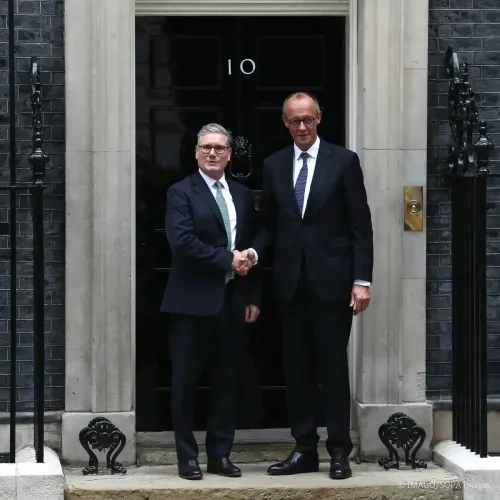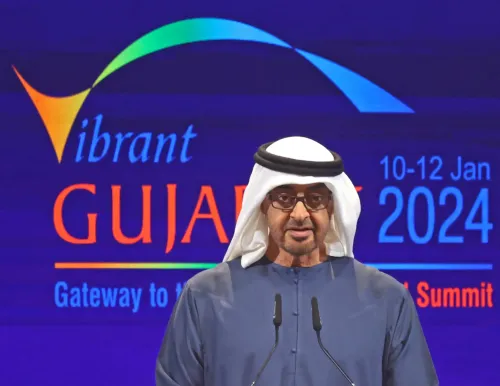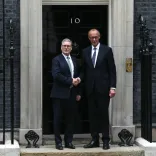Did Portugal's President Veto the Law Tightening Immigration Regulations?

Synopsis
Key Takeaways
- President Marcelo Rebelo de Sousa vetoed the controversial Foreigners Law.
- The Constitutional Court ruled parts of the law unconstitutional.
- Provisions limiting family reunification were a major issue.
- Portugal has been tightening immigration controls amid rising migrant arrivals.
- The government intends to revise the law for future implementation.
Lisbon, Aug 9 (NationPress) Portugal's President Marcelo Rebelo de Sousa has exercised his veto power on the revised Foreigners Law, sending it back to parliament shortly after the Constitutional Court deemed several of its provisions unconstitutional, as stated on the presidential website.
According to Diario de Noticias, the court found that certain measures, specifically those limiting family reunification and curtailing appeals to the Administrative Court regarding decisions from the Agency for Integration, Migration and Asylum, contravened constitutional protections.
One particular clause, which omitted a spouse or equivalent partner from reunification, could potentially result in the separation of the nuclear family of a foreign national holding a valid residence permit, as reported by Xinhua.
The court also ruled against the mandatory two-year waiting period before residents could apply for family reunification for all adult family members based abroad. Furthermore, it struck down the suggested extension of the maximum review period for family reunification applications from 90 days to nine months, asserting that this violated the state's obligation to safeguard family unity.
The legislative process and the amendments have stirred significant controversy. President Rebelo de Sousa has consistently raised alarms during the drafting phase, criticizing the process as hurried, and referred the bill to the Constitutional Court for a preventive review.
The Foreigners Law, which governs immigration, visas, residence permits, and family reunification, has been revised multiple times in recent years. On June 23, the Portuguese government approved legislative proposals to amend the law, and on July 16, the parliament passed these amendments aimed at tightening immigration regulations.
Prime Minister Luis Montenegro stated on Thursday that the government would honor the court's ruling and pursue legal adjustments that align with constitutional principles while trying to achieve its policy objectives. Minister of the Presidency Antonio Leitao Amaro emphasized that the government would not abandon the proposed amendments and would revise the plan for future implementation.
In recent years, Portugal has moved to tighten immigration controls following a surge in migrant arrivals. In 2024, it abolished the 'expression of interest' residency scheme, which previously allowed non-EU migrants to enter on a tourist or non-work visa and subsequently apply for a residence permit.
Authorities indicate that this increase has placed a strain on public services such as housing, education, and healthcare. Rising housing costs and shortages in major cities like Lisbon and Porto have amplified demands for population control. Officials also point to instances of migrants arriving on short-term visas and remaining without formal employment contracts, contributing to informal labor markets.










